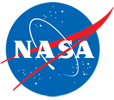Life at Sea: All Science All the Time and That’s a Good Thing….well mostly.
Any cruise aboard a research vessel feels like the days of the week are blended into one. The only timekeeping that one really has to pay attention to is the hour. When is the next instrument to be deployed over the side of the ship? When do the experiments need to be sampled again? When can I have a nap? A snack? The schedule is all science, all the time, and it’s awesome.
The R/V Atlantis is a state-of-the-art floating laboratory that has everything we need to succeed, from instrumentation and over the side equipment to highly skilled technical staff, officers and crew. It’s the perfect platform to promote and support scientific productivity for large projects like the North Atlantic Aerosols and Marine Ecosystems Study (NAAMES). During this four week research cruise the ship has hosted 13 different research groups, each studying different aspects of marine physics, chemistry, biology and atmospheric science. Linking them all is the context of a bloom forming ecosystem, the North Atlantic. The interdisciplinary nature of this cruise has forced everyone to leave their smaller focused research “boxes” and think about how the questions and approaches of other subdisciplines can complement each other to address a larger question. The question in this case being, “how do the biological and ecosystem processes associated with large phytoplankton blooms affect ocean biogeochemistry and aerosol production in the North Atlantic”?

R/V Atlantis just before departure from WHOI
We are perfectly set up to tackle the question. Within a 200-foot radius cutting through North Atlantic waters, we have our sampling gear and instrumentation, well-equipped laboratories, state rooms, a galley and most importantly, interdisciplinary colleagues with whom to share ideas, debate and hone experimental designs. While life at our home institutions provides us with similar frameworks to investigate the questions we view meaningful, many of us often reflect on a busy week wondering what exactly we accomplished. That viewpoint is largely consequence of schedules being stretched thin by teaching (or taking classes), going to scheduled meetings, to impromptu meetings, and to meetings about those meetings, and then of course, writing emails, many of which are to schedule more meetings. At sea, each of us is allotted 100mb of internet connection per day (about 10 minutes of access on a home network), which is amazing because 1) we can access the internet in one of the most remote places in the world and 2) internet activity is short, to the point, and without frivolous lingering on social media. It is nice to be able to communicate with family and friends at home, but the limited access to the internet means that the majority of our energy is spent on research activities.
The only meetings we attend are regular science briefings designed to discuss the science conducted onboard, to prepare for upcoming over-the-side operations, to consider changes to the ship course, and to be informed about changing weather patterns and sea state. These consume fractions of our days, leaving most of the hours available for science operations. Sleep has been hard to come by, but time at sea is such a rare opportunity that the objective is always to get as much done as humanly possible and worry about sleep later. To give this some context, our group’s research focuses on the microbial degradation, or decomposition, of organic matter in the vertical oceanic water column. Part of our research requires us to conduct microbial incubation experiments that are run over a week to a month. In our land-based laboratories, we might be successful in conducting five to ten of these experiments over the course of a three month period. Out here, we are finishing up our 30th microbial degradation experiment in three weeks.

Regular science briefing aboard the NAAMES cruises.
This effort requires significant multitasking and planning and is only feasible because of the lack of distraction that comes from the regular day-to-day life. This mode of operation is certainly not sustainable over the long-term, but in short (weeks) burst, it has proven to be very productive. Though these research cruises are not designed for pleasure, they provide us with the time to focus on the work we love, to interact with interdisciplinary scientists of similar interests, and to appreciate the mysteries of the natural world, reminding us why we push ourselves to do what we do.
Written by Craig A. Carlson and Nicholas Q. Huynh



